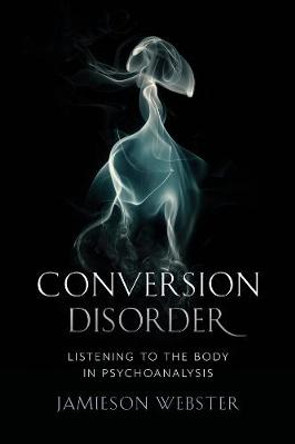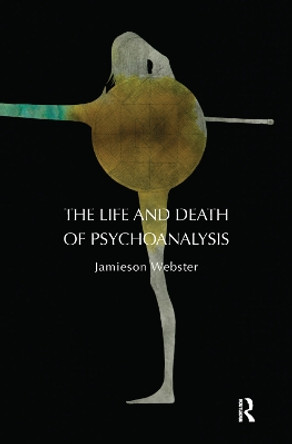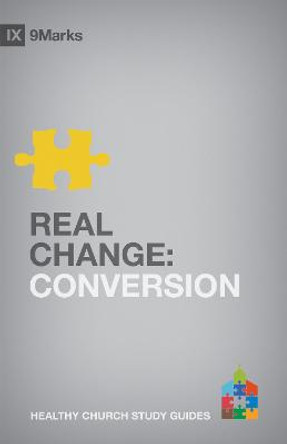Description
Part memoir, part clinical case, part theoretical investigation, this book searches for the body. Is it a psychopathological entity; a crossroads for the cultural, political, and biological in the form of care; or the foundation of psychoanalytic work on the question of sexuality? Jamieson Webster traces conversion's shifting meanings-in religious, economic, and even chemical processes-revisiting the work of thinkers as diverse as Benjamin, Foucault, Agamben, and Lacan. She provides an intimate account of her own conversion from patient to psychoanalyst, as well as her continuing struggle to apprehend the complexities of the patient's body. When listening to dreams, symptoms, worries, or sexual impasses, the body becomes a defining trope that belies a vulnerable and urgent wish for transformation. Conversion Disorder names what is singular about the entanglement of the fractured body and the social world in order to imagine what kind of cure is possible.
About the Author
Jamieson Webster is a psychoanalyst in New York. She has written for the New York Review of Books, Artforum, the Guardian, and the New York Times. Her books include The Life and Death of Psychoanalysis (2011) and Stay, Illusion! (with Simon Critchley, 2013).
Reviews
[Conversion Disorder] masterfully integrates some pretty heavy psych theory into a surprisingly personal framework. Intellectually dense but definitively accessible, the book illustrates what it is that makes Jamieson unique. * VICE *
Conversion Disorder accomplishes a formidable task, for it is a book that speaks to readers who are making their very first forays into the study of psychoanalysis and to those scholars and clinicians who have long been thinking about the field's most foundational questions, including hysteria, anxiety, the body and the training of new analysts. * PSYCHOANALYSIS AND HISTORY *
Being dragged into the orbit of Webster's mind is like entering the Magic Mountain: you go in as a visitor, and stay as a patient. -- Tom Mcarthy, author of Remainder and Satin Island
Jamieson Webster's new work reflects upon that aspect of hysteria-or conversion disorder-that has eluded the attention of most commentators: the indifference of the subject at the very moment that the symptom is most clearly enacted. This point of departure allows Webster to think about what the body contains but also what traverses the body at a level that is prior to speech, that is perhaps the condition of speech itself. This incisive and unsettling meditation gives us a form of psychoanalytic writing that tracks the transference as bodily transformation and impasse. It is written in and for our times, when the courage and difficulty of the slow labor of psychoanalysis provides a perspective that eludes the certitudes of dogma and the exhilarations of false promises. Webster's book asks us to stay within the domain of difficult exchange where what registers and shifts at the level of the body lets us know more about what we can expect of life and what our own living carries of the lives of others. Beautifully written, theoretically brave, and disturbing in all the best ways. -- Judith Butler, Maxine Elliot Professor of Comparative Literature and Critical Theory, University of California, Berkeley
Jamieson Webster's Conversion Disorder approaches the unscalable wall of failed sublimation that marks the problem of intensities that rise and fall without apparent events. "Through the question of affect, the body insists." This is not affect theory in the usual critical sense-affect here means being affected, speaking to the kind of excitability that communicates beyond the scene. There's beautiful writing here, giving us an account of the affective impasses of the symptom. -- Lauren Berlant, George M. Pullman Distinguished Service Professor, University of Chicago, author of Cruel Optimism
As ever, Jamieson Webster's writing is provocative and challenging, inviting us to question the comfort zones of contemporary discourse. In her unique style, she combines a meditation on her own psychoanalytic practice with an engagement with clinical and conceptual issues that are relevant to all of us: anxiety, the body, desire, dreams, and what it means to listen to others. And, for the first time in psychoanalytic literature, there is an appendix about the author's appendix! -- Darian Leader, psychoanalyst and author of The New Black: Mourning, Melancholia, and Depression
Conversion Disorder is a wonderful book and a pleasure to read-each page sparkles with insight. What I like in this book is the frankness of the author's self-presentation-with her doubts about her profession, her family background marked by separation, and her many readings of philosophers, all interesting, some surprising, like Bachelard, but always bringing something relevant. -- Jean-Michel Rabate, University of Pennsylvania, American Academy of Arts and Sciences
Book Information
ISBN 9780231184090
Author Jamieson Webster
Format Paperback
Page Count 312
Imprint Columbia University Press
Publisher Columbia University Press









